By Daniel Carrero Ramírez
Disclaimer: All of the interviews for this story were conducted in Spanish and translated into English.
As Valentina Ceballos Jiménez warmed up before the Terpsichore University Dance Challenge, she stepped aside from her teammates. As usual, she began the same ritual she does before every competition: deep breaths, signing a Sign of the Cross, touching the floor with her right hand and saying, “God, I leave it up to you.”
She walked to the centre of the stage and lay down on her back with her arms spread and her waist slightly lifted off the ground. She waited for her solo, “Agua y Mezcal” by Guitarricadelafuente—the only Spanish song used in the whole competition—to start playing.
As the slow beat of traditional Spanish guitar crescendoed, the rhythm accompanied her silhouette and her precise shoulder, torso and hip movements. That night, the judges got a rare performance infused with Latin flair.
“I am very grateful to have this voice, a voice that can be heard as a Latina in this field,” said Ceballos Jiménez.
Raised in Tampico, a small town in the Mexican state of Tamaulipas, Ceballos Jiménez joined the Toronto Metropolitan University (TMU) Dance Pak in her second year of biomedical engineering after migrating to Canada. Now the team captain, she has experienced a different relationship with the sport compared to other Dance Pak members.
“Everyone from the team comes from a very strong technical background, something I don’t have,” she said. “I feel like I have my own thing and that’s why I am where I am.”
Throughout her time with the Dance Pak, Ceballos Jiménez has been able to bring her Latin twist as the only Latin American on the team since 2017 by introducing Spanish music in training and dance routines. This allowed the team to blend in more sounds, movements and textures in their routines—something she hasn’t seen from other universities.
In the small Latin contingent on Bold teams, athletes share a common trait. The “Latin Flair” is a common expression ascribed to a Latin American when performing any sport. According to Oxford Languages, “flair” is defined as “a special or instinctive aptitude or ability for doing something well.”
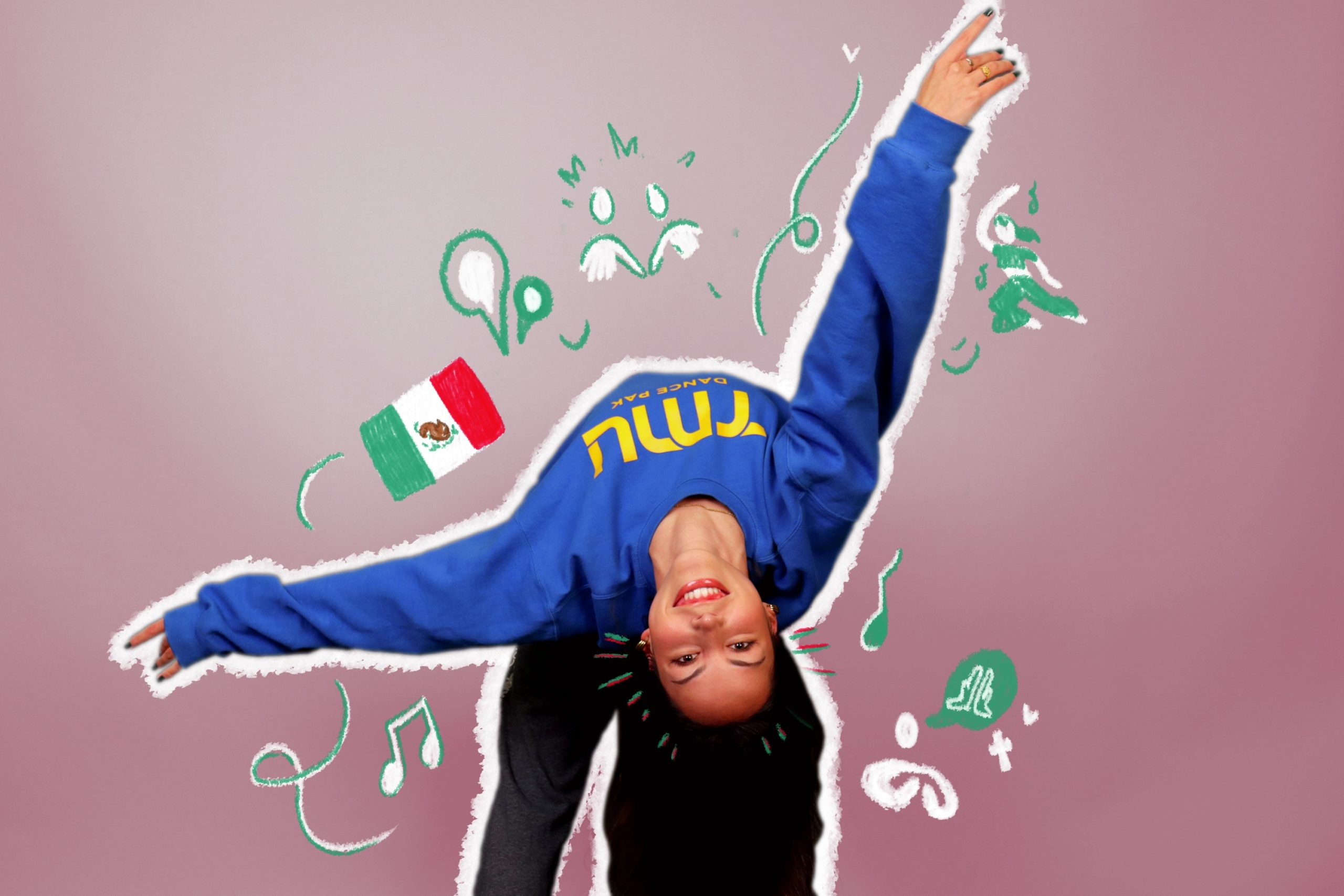
While Ceballos Jiménez was brought up in a Latin environment—giving her a strong sense of belonging and pride in the sport she performs—not all Latin American athletes are born and raised in their countries of origin. Instead, some rely on their background to mould their identities and find themselves and their heritage in sport.
Bold men’s soccer midfielder Daniel Prieto was born and raised in Mississauga, Ont., by parents who migrated from Boyacá, Colombia. His heritage has influenced not only his pursuit of the sport he plays but also the way he plays.
After serving as a redshirt for the team last season, Prieto made his regular season for the Bold this year. While grateful for the opportunities he gets, he is hungry for more.
“I am happy with my situation, but there is more I can do,” said Prieto. “I always hold myself to high expectations.”
Prieto has yet to score his first goal in a TMU uniform but when he does, he knows how he will celebrate. He recalls the Colombian national team and their memorable celebrations.
“For some strange reason, I don’t score easy goals,” he said. “It always has to be a goal from 30 metres away. [When I score, I] celebrate it by going to the bleachers and doing a backflip.”
“I am very grateful to have this voice, a voice that can be heard as a Latina in this field”
Prieto is aware of the sacrifice his parents made for him and his family. He knows that the opportunities he’s had in soccer and academically such as attending TMU are things his parents never had.
“One thing I started doing recently is to fight more for the ball. My teammates say I run like a dog,” said Prieto. “That grit or passion also comes from my parents, for the sacrifice they made to get here to Canada…it’s fighting for what you want and that’s the best way I can express myself, it’s playing with heart.”
For Prieto, getting to the place he is now has come with lots of challenges and perseverance. Rather than being recruited, he tried out for the team at a camp where head coach Filip Prostran reviewed over 200 athletes.
Prieto joined training sessions in January and August 2023 and played in a few friendlies with the team. After he played 60 minutes against the York Lions, Prostran pulled him aside and told him he made the team.
“My case wasn’t that [Prostran] found me and gave me an offer. I wanted to play for this team,” said Prieto. “I had the most difficult route.”
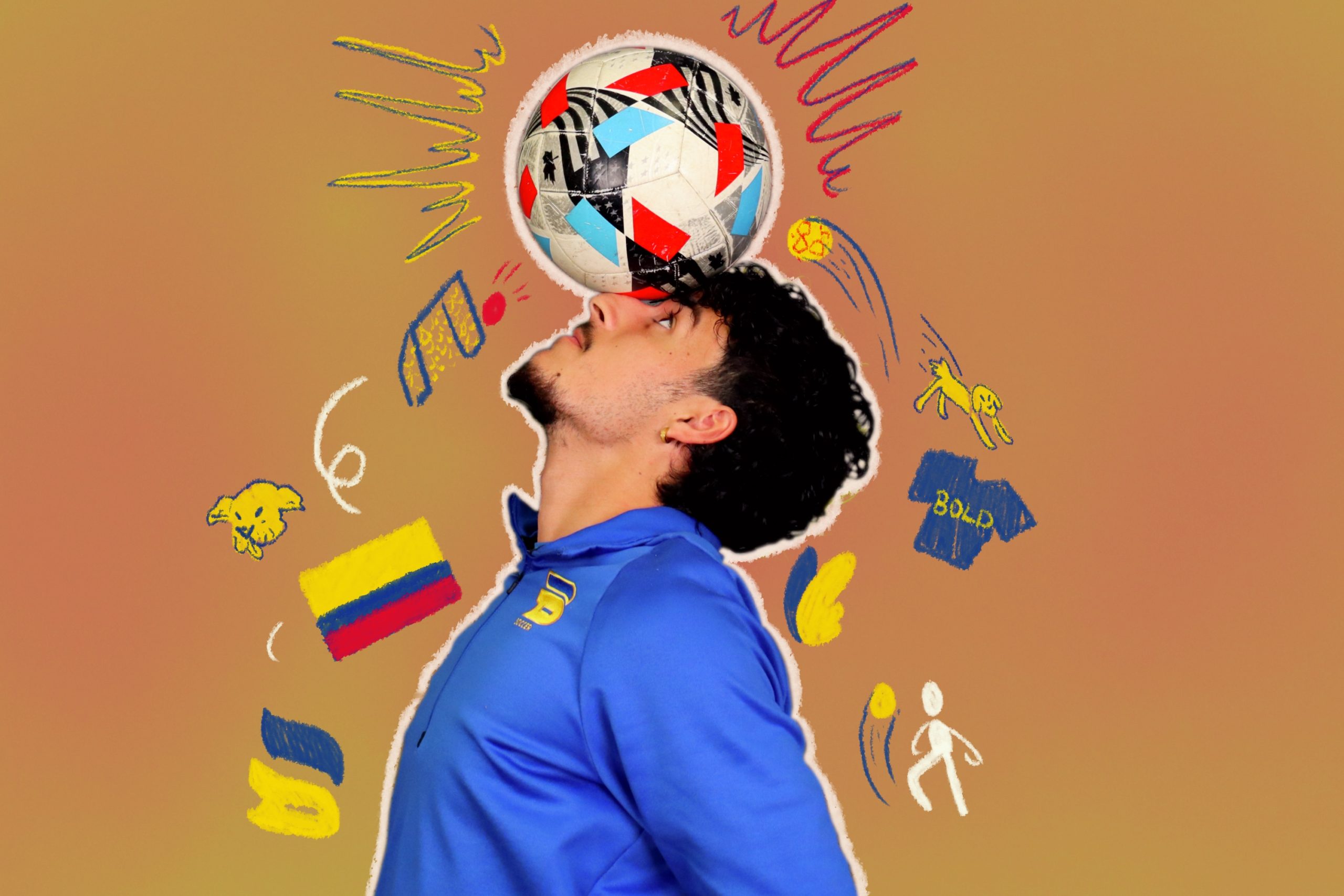
Prieto’s relationship with soccer was fostered even before he was born. For other athletes, the choice of sport is fractioned by having two equal parts to their identities.
That’s the case for Santiago Rincon, a third-year pitcher for the TMU baseball team. With a Spanish mother and a Venezuelan father, he took on both soccer and baseball as hobbies growing up.
Eventually, the decision to pursue baseball was made when he was six years old and wanted to pursue a sport more seriously.
“I remember my dad telling me ‘Look at the Venezuelan national soccer team and now look at the baseball team, that’s your decision,’” said Rincon. “He said ‘With Venezuelan blood, you are a baseball player.’ So it really is part of my identity and culture.”
After the decision, Rincon went to a tryout for his first baseball club. It was one of the last tryouts for the season and the roster was almost complete. Nevertheless, he secured a spot on the team, and five years later, his coach told him the real reason why he joined the team.
That day, Rincon was wearing a shirt of the Águilas del Zulia, a professional Venezuelan baseball team based in Maracaibo—where his family is from and a Venezuelan hat. The coach admitted that because of what he was wearing, he thought he must be good.
“It’s almost like I have a responsibility with having a name like Santiago Rincon. I can’t afford to be bad,” said Rincon.
That type of pressure comes with high standards set by his family. His father migrated to Canada to complete a PhD in chemical engineering and his mother completed her degree in architecture. Rincon is used to this feeling and embraces it.
“I’ve always felt happy to have a higher standard and if it’s because I am Latin American, then OK,” he said.
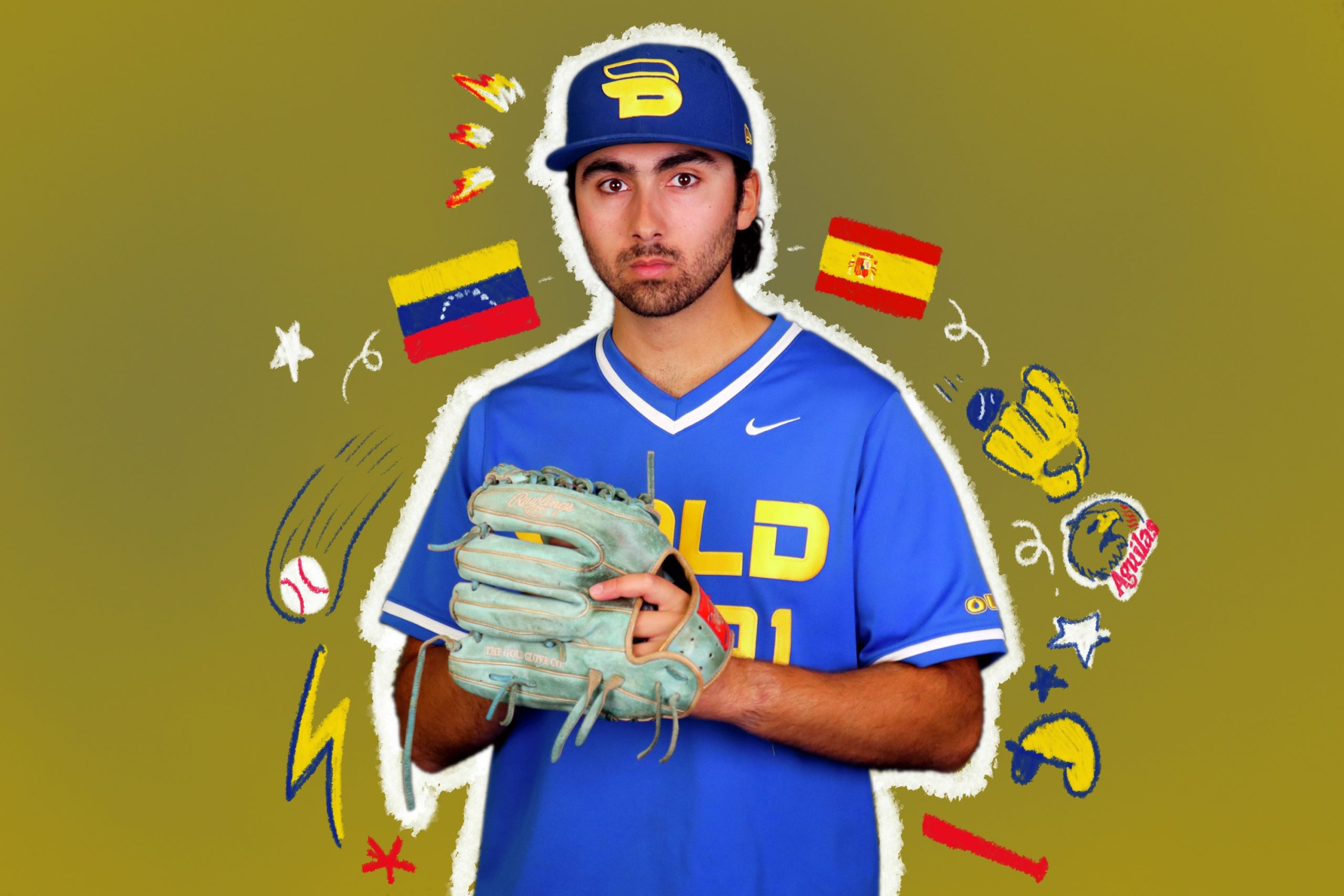
While some athletes have enjoyable experiences marrying sport and heritage, others experience uncomfortable situations where their sport can drift them apart from their culture and identity.
Regina Figueroa Bautista discovered figure skating when she was about six years old. While watching movies with her grandfather and sister back in Mexico City where she was born and raised, they stumbled across Ice Princess, a movie about following your dreams and passion for figure skating despite the expectations of others. This has inspired Bautista ever since.
While perhaps unexpected, Mexico has a sizable figure skating community. The difference from Canada’s standard is the quality of ice, as most of the rinks where Bautista trained were open to the public and in the middle of a mall.
“The one thing in Mexico is the heat. There would be times when I was basically skating in a pool,” said Bautista. “I got really used to skating in bad conditions.”
“That grit or passion also comes from my parents, for the sacrifice they made to get here to Canada”
Bautista moved to Canada at 14 years old and enrolled in Everest Academy, a sports-focused school.
When she joined in January, the school argued that she couldn’t start playing without a figure skating coach. Later, more excuses arose.
“They believed since I was Mexican, I wasn’t able to skate properly,” said Bautista. “I told them ‘Let me bring my skates and I’ll show you’ but I never really got the chance.”
Instead, the school placed her in soccer, which she hated playing. Eventually, Bautista decided to switch schools along with her sister, though Everest Academy tried to reel them back.
“We were paying international fees and obviously the school knew that was a good amount of income,” said Bautista. “They offered us the universe basically. New coach, more ice rink hours, but no, it was too late.”
Since that experience—which came when Bautista was just discovering herself and her identity through sport—she perceives and represents herself differently from what others expect from a Latina.
“I don’t hide the fact that I’m Latina but at the same time, I don’t scream it proudly,” she said.
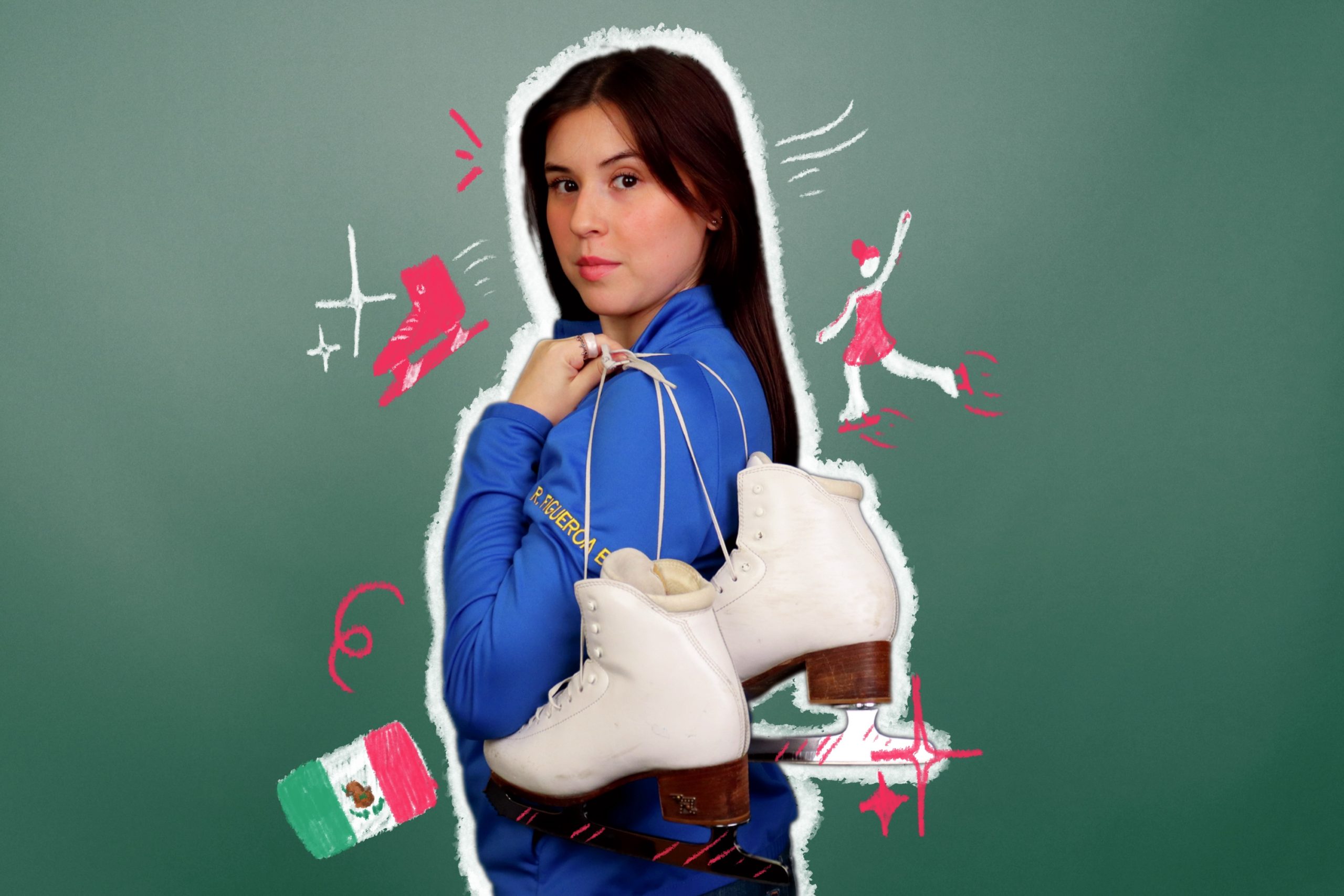
Between moving to Canada and coming to TMU, Bautista didn’t perform. When she joined the university’s figure skating team in 2021, the sport she loved was giving her a chance for “redemption.”
Now in her fourth and final year with the team, her time in figure skating has seen ups and downs. Though she is grateful for the four years to stand out, her relationship with the sport has changed over time.
“I love the sport but it is something I wouldn’t want my daughters to practice,” said Bautista.
Through all of their tribulations, successes and everything in between, Latin athletes at TMU have brought their own flavour to their sports.
For Ceballos Jiménez, that flavour has been recognized. Her solo earned her the “unexpected genius” award from the judges. For her, resilience, persistence, determination and the way of doing things can be attributed to one thing.
“It is the Latin Flair.”


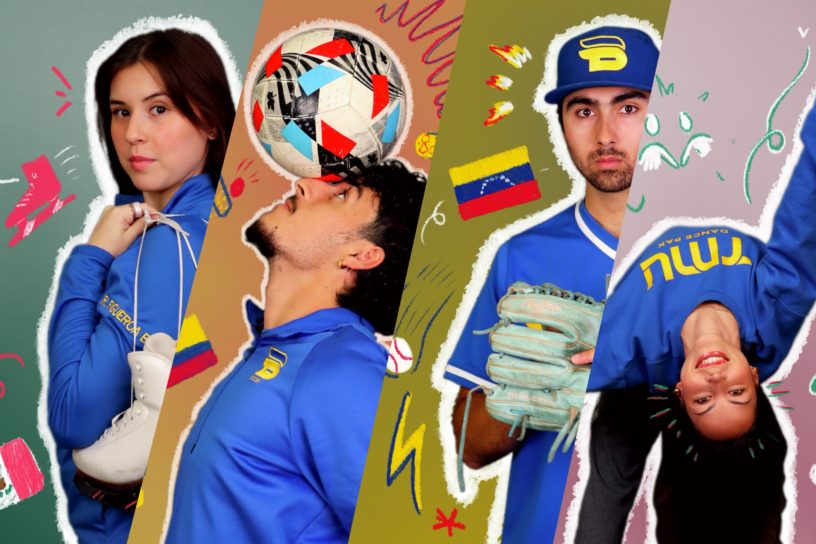









Leave a Reply